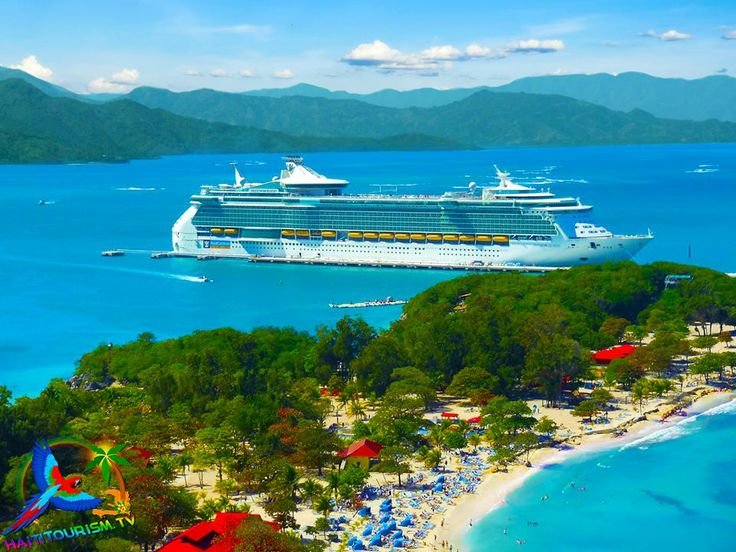



The Eastern Caribbean states, also known as the British West Indies due to their English-speaking heritage and British Commonwealth membership, have long been a tourist destination of dreams.
The Caribbean citizenship by investment programs have become a beacon for investors seeking stability, freedom, and global mobility. Once famous solely for their beaches and tropical beauty, the Eastern Caribbean nations are now recognized among the most desirable countries that offer citizenship by investment. These programs present an opportunity to gain a second passport by investment, securing both personal and financial independence in an increasingly uncertain world.
Citizenship is probably the most valuable personal asset we are privileged to hold. It lasts beyond a lifetime: it is inheritable, allowing it to be passed down to future generations. We can lose money and property in business deals, wars or political disputes, but it is much harder under international law to lose citizenship.
In today’s uncertain world, a passport should be regarded as a hard asset. There can be no doubt that people who hold multiple citizenships are rich in freedom and wellbeing.

Caribbean Citizenship by Investment, known as “CBI” for short, refers to Government-run programs focused on achieving the sustainable economic growth and resilience of these island nations, utilizing the grant of citizenship and the resultant passport as an incentive.
CBI programs are also known as “golden passport” or “second passport” programs, but these are misnomers because the main asset is the citizenship not the passport. The passport itself is just a paper booklet that expires and can be renewed, or can be replaced if lost. The passport represents the citizenship, not vice versa. Nonetheless, it is the passport that opens doors when you travel across international borders.
Under CBI programs, citizenship and passport is granted to eligible foreign applicants and their families. After stringent due diligence screening to make sure they are good guys, the applicants make a substantial investment in the country’s economy in return for the citizenship and passport.
The Real Estate sector, government-managed funds, individual businesses and charities are all potential recipients of these investments. The exact CBI investment option chosen depends on the individual seeking citizenship.
Caribbean Citizenship by Investment programs are diligently regulated by local and regional laws and procedures. They share some common compliance bodies, like the JRCC (discussed below), to ensure their proper functioning and security in a largely and increasingly regulated environment worldwide.
Successful applicants become citizens of these island nations within as little as a few months. The successful applicants benefit from the highest possible level of access as citizens of another country (something that has become very relevant in the post-pandemic era).
Beneficiaries of Caribbean CBI enjoy full access to local economies in which they can settle, expand their business, and raise their children in a safe and peaceful environment – in other words, a viable Plan B for challenging times.
Besides this ultimate access to a country and a region, Caribbean passport holders also benefit from ease of travel to other friendly regions. The historic British Commonwealth connection facilitates access to the UK and Canada, while more recent treaties open doors to European countries such as the Schengen area and even the USA via Grenada’s E-2 treaty. Overall, the Caribbean CBI countries benefit from being small and neutral jurisdictions that maintain friendly diplomatic ties with other nations and economic blocs.
Obtaining a new Caribbean citizenship by investment is win-win: mutually beneficial for the new citizen and their new homeland. CBI facilitates cross-border trade, enhances tax efficiency, enables access to local and international banking and financial institutions, and last but not least aids local economies by creating jobs and fostering resilient economic growth.
CBI naturally foments high end tourism, as new passport holders visit and fall in love with their adopted highlands. This in turn fuels cultural exchange and multiculturalism, as diaspora from different backgrounds converge as citizens or residents in the new country and region. All these perks contribute to reinforce a powerful and rewarding sense of belonging: simultaneously empowering and rewarding for the stakeholders. Citizenship is the ultimate private business and social club!
There are currently five countries that offer citizenship by investment in the Caribbean.
They are:
A lot of people ask: “How much does it cost to acquire a Caribbean passport?” But as will be evident in the rest of this article, it’s not possible to “buy a Caribbean passport.” Citizenship by investment in the Caribbean is based on much more than a contractual relationship: in sharing citizenship and political rights in their nations, Caribbean citizens open the doors to their homelands and their hearts in a way that few other countries do.
The amount of investment required to acquire a Caribbean citizenship fluctuates depending on many variables: the investment route, the family composition (age, number of applicants), nationality of the applicant, etc. This Ultimate Guide to Caribbean Citizenship by Investment will delve further into these details below.
You can calculate the exact costs yourself… but for reasons that will become clear in this article, it’s a good idea to select a government-licensed immigration specialist such as Global Citizen Advisor at any early stage of any application. Specialist companies have lots of experience in navigating the intricacies of the programs, from finding the best deal for your family to getting the due diligence process right the first time! They are also regulated and supervised by the governments involved, providing protection against scammers or cowboys who are unfortunately present in the CBI industry.
A second citizenship from one of the Eastern Caribbean (British West Indies) countries is the best way to safeguard family and wealth – better known colloquially as “ass and assets” – against political and economic instability. Caribbean citizenship also provides a global mobility solution that opens up greater freedom of travel and secure diversification of assets.
At Global Citizen Advisor, as global asset protection planners, we believe in the notion that citizenship and residence should be a matter of choice, rather than an accident of birth. The right citizenship and residency can be seminal for the continued and future success of the family and new generations.
Worth noting: You have the possibility to recoup your money after owning the property for a few years of mandatory holding time. A real estate owner can resell the property after the minimum legal holding period, hopefully recovering most of the funds invested or maybe even at a profit. Refer to our Real Estate Hub for further information and recommendations.
Strong statutory asset protection:. Independent of citizenship by investment, you can create legal vehicles such as trusts, LLCs or limited company formations, and open bank accounts in offshore banks. Refer to our Corporate and Family Office sections for more details.
The noisy flow of information in the mainstream media about Caribbean “passports for sale” may be overwhelming and hard to understand. Investors often find themselves misled by myths and fake news propagated online. Let’s have a look at some misconceptions about these programs – where news about citizenship by investment programs has nothing to do with reality:
False. Citizenship by Investment applications must be submitted via government-licensed agents, which are the only companies or individuals authorized to introduce applications to the CBI Units. They are strictly regulated by the CBI authorities under each program. Applicants are not permitted to submit their own applications, which is intentional and operates in their best interest. The process is technical, and the document gathering can be dense with many legal angles to consider, which the average applicant will need assistance with. There are many moving parts that are not immerdiately obvious, such as escrow and banking, background checks and more.
Government staff do not have time and are not trained for a client-facing or “hand holding” role. Licensed experts are, for this reason, required to submit applications. Applicants are safer with the knowledge that they are in the care of professionals that have successfully processed thousands of citizenships by investment applications.
False, but – not surprisingly- this is one of the most popular concerns, probably because of the mix of Caribbean citizenship by naturalization under traditional programmes, versus Caribbean citizenship under Investment-based programmes. Naturalization typically requires residents to live in the country for a set period to become eligible to apply for naturalization, around 5-8 years on average.
Citizenship granted through an investment program typically has no physical presence requirements, no required residence time, and is granted within a matter of months rather than years.
False, but let’s admit it: Investment amounts are in the hundreds of thousands. It is not a modest investment, but it is what many people will spend on a home or even a car. Therefore you don’t have to be a millionaire to apply.
Comparatively to other citizenship programs, the Caribbean ones, stand out for being slightly more competitive in terms of how much you are required to invest.
Whilst the ultra-rich with their private planes and super yachts can and do obtain Caribbean passports, the reality of the average applicant is slightly more discreet. Our typical client is a businessperson who has been successful at what they do, has acquired some wealth over the years, and is keen to preserve it.
Some CBI programs require a higher cash outlay than others, because there are other benefits that are less obvious: possibilities to resell and recoup the money invested (in real estate, or government bonds); or the access to new business opportunities, or possible passthrough to the E2 Visa in the US (for Grenadian citizens), more affordable cost of living while enjoying a superior lifestyle, etc.
Some lesser-known benefits might include anything from the highest status and points in hotel loyalty programs, annual hotel or resort stays that can be exchanged worldwide, or domciliation services like a virtual mailbox and telephone line aimed at digital nomads.
Small entrepreneurs can also dive into new local start-ups at a fraction of the investment, they would in other parts of the globe. If proven successful, the new business can be a tool of recovery of the investment amount put into obtaining citizenship.
Bottom line: Many CBI investors are not necessarily HNWI, but middle class business people who appreciate the value of geopolitical diversification.
False. The degree of unmeasured scrutiny and negative perception of the programmes’ practices has grown in the last few years due, undoubtedly, to politics. Most negative opinions are unfounded, but have caused a poor perception in some circles of the Caribbean programmes’ credibility.
Lack of transparency, low investment requirements and source of funds concerns have dominated the narrative around the programs. These perceptions are – at minimum – exaggerated and do not respond to reality. Every few years the programs conduct reviews of their practices, review of the legislation and overall dynamic, that prompt changes to strengthen its operation. The Caribbean Programs are responsible vehicles with the humble purpose of aiding local economies for the wellbeing of their societies.
